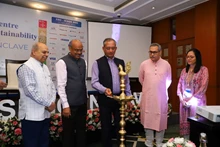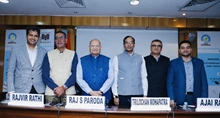
Karnataka is one of the most water-stressed states in India, with nearly 61% of the state located in a drought-prone region, and the state has reason to be concerned as it's new Water Policy 2022 warns of a downward trend in rainfall and an increase in the area under drought in the coming months.
With rapidly depleting groundwater and projected increases in demand for water, the state may face more challenges in the future, having experienced more than 15 drought years over the last two decades. However, the policy promises to address the challenges ahead by proposing measures such as water penalties and groundwater extraction restrictions, among others, as it aims to provide directions for strengthening water resource management and optimizing the use of the state's limited water resources, according to Water Resources Department officials.
According to the recently approved state cabinet policy, "Karnataka's climate change studies have indicated that there is a long-term warming trend and a negative trend in rainfall for Karnataka, and the area affected by drought will increase."
"During the Kharif season, most northern districts are expected to see an increase in drought incidences of 10-80%, with some districts experiencing nearly a doubling of drought frequency. Floods are becoming more common each year as a result of heavy rainfall that is higher than the long-term average on some days and sometimes 10 to 20 times higher than normal," the report stated.
Karnataka is the eighth largest state in terms of population, with a projected population of 67.56 million in 2020 (UIDAI, May 2020), and has two major river systems — Krishna and its tributaries in the north, and Cauvery and its tributaries in the south. Because Karnataka has limited water resources (1,608 cubic metres per person per year overall and approximately 1,072 cubic metres per person per year in eastward flowing rivers), the use of irrigation water is critical.
Groundwater accounts for approximately 26% of total water consumption. Groundwater sources, on the other hand, are "overexploited" in 52 taluks across 15 districts, "critical" in 10 taluks across eight districts, and "semi-critical" in 35 taluks across 17 districts. "Groundwater is the dominant form of irrigation in the state, accounting for 56% of irrigation area in the state. A major concern is the declining groundwater table and increasing contamination of groundwater," the department stated in a policy note.
Furthermore, pointing out that agriculture accounted for approximately 84% of water diversions and that estimated water demand in the state may reach 1,591 tmc (thousand million cubic feet) by 2030, up from 1,491 tmc in 2020, the policy states that agriculture will remain by far the largest water user and the primary source of employment for approximately 55% of the total population and approximately 75% of the rural population.
It aims to achieve objectives such as ensuring water security for the entire population, improving the efficiency of urban and rural water supply, as well as industrial water use; increasing the productivity and efficiency of irrigation water in agriculture and livestock; improving the health of watersheds, water bodies, and rivers; and improving water governance.
The policy states that the state will implement all drinking water supply programmes in order to increase the availability of safe drinking water in urban and rural areas, as well as during times of water scarcity. It also proposes that groundwater extraction, other than for domestic use, be restricted for commercial use based on the degree and zone of exploitation and that a user charge system be implemented effectively using a proper set of incentives and penalties that are affordable to all societal segments.
In addition, the Chief Secretary will chair a high-level 'Water Policy Committee,' which will serve as the key body for coordination among all departments and will meet on a regular basis to provide policy guidance, coordination, and performance review of the state's implementation of the Water Policy 2022.











